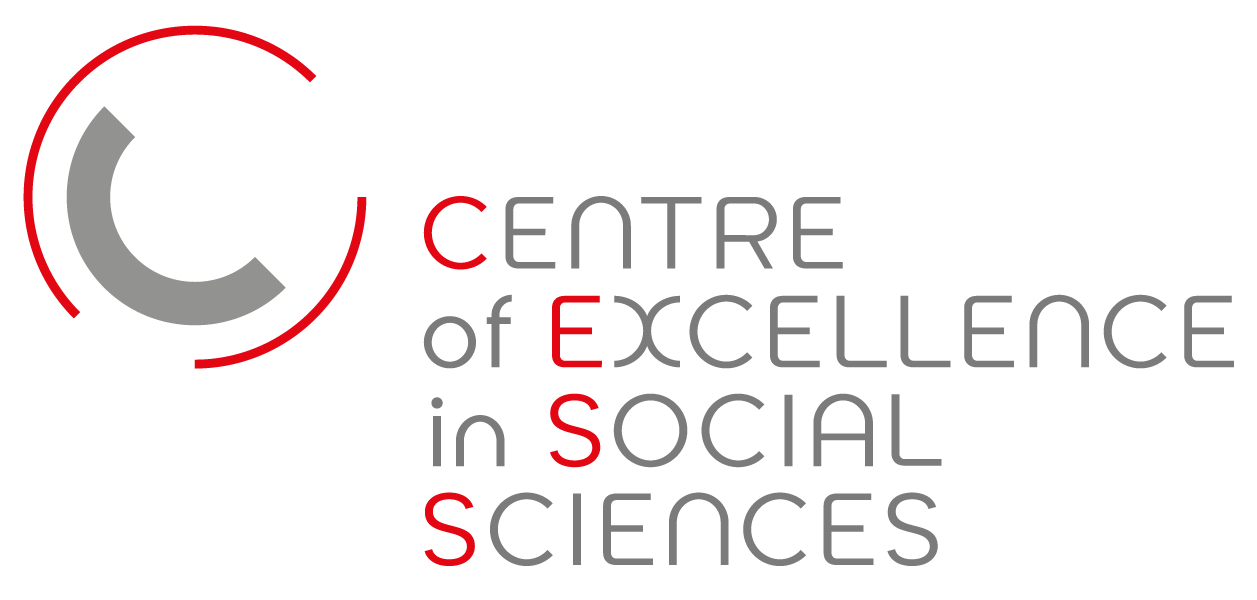Interdisciplinary Seminar in Empirical Social Science
Interdisciplinary Seminar in Empirical Social Science (ISESS) is a monthly seminar series that brings together scholars from diverse backgrounds in social science who are interested in comparative empirical research. It creates a unique interdisciplinary and inter-institutional forum to present work in progress and receive feedback. All meetings will be held in English.
The ISESS seminar is affiliated with the new Centre for Excellence in Social Science at the University of Warsaw, which is part of the Excellence Initiative – Research University (IDUB – a program funded by the Ministry of Science and Higher Education).
In the academic year 2024/25 the seminar is convened by Adam Gendźwiłł and Michał Bilewicz. The seminars take place on selected Wednesdays at 13:15 and will be held in the Kazimierzowski Palace’s Commission Room (“Sala Komisji”, in the attic, third floor by elevator, Krakowskie Przedmieście 26/28).
Seminars in the academic year 2025/2026
Anna Potoczek, University of Warsaw
On triumphs and tragedies: how societies perceive historical successes and failures
Historical narratives are central to the construction of collective identities and to shaping perceptions of the past, present, and future. One of the crucial dimensions of past events is their outcome. Yet, the question of whether historical successes and failures are perceived differently – and how these perceptions vary across cultural contexts – remains underexplored. This talk addresses these issues by examining how individuals evaluate the morality, historical importance, and commemorative value of historical events, depending on how they ended. While societies often celebrate victorious uprisings and movements, the study questions whether failed attempts at resistance can be recognized as equally or even more moral and important. Drawing on experimental data collected in multiple countries, the research investigates whether perceptions of historical events are systematically shaped by their outcomes and whether these patterns are moderated by national context. Studies 1 and 2 (total N = 4543) tested this research question across diverse scenarios representing cases of historical resistance, including democratic opposition, resistance to foreign invasion, and social movements for equality, in Poland, the United States, and Norway. Study 3 (N = 9157) examined the role of outcome in the first scenario across six Central European countries: Poland, Hungary, Austria, Czechia, Germany, and Slovakia. The findings contribute to broader theoretical debates on the functions of historical narratives, offering new insights into how societies construct meaning from their past.
BIO: Anna Potoczek, PhD – social psychologist and Russian philologist, Assistant Professor at the University of Warsaw. In her research, she investigates political extremism, voting behaviour, and societal responses to various crises. She is a member of the Board of the Polish Social Psychological Society and the recipient of numerous prestigious awards, including the Best Dissertation Award from the International Society of Political Psychology, the Prime Minister’s Award, and the START Scholarship from the Foundation for Polish Science. Her interests also include promoting good research practices as part of the Open Science movement.
The Kazimierzowski Palace’s Commission Room (“Sala Komisji”, in the attic, ul. Krakowskie Przedmieście 26/28) will be the unusual location for the seminar.
André Blais (University of Montreal)
Damien Bol (Sciences Po Paris)
Carolina Plescia (University of Vienna)
Are Supporters of Democracy Good Losers?
Regime legitimacy and survival rely on citizens’ consent to election results, even when these results are unfavorable. Theories posit that individuals with pro-democratic attitudes are more accepting of electoral losses. We test this assumption by analyzing the empirical relationship between support for democratic principles, such as universal suffrage, and electoral consent to randomly generated, hypothetical but plausible electoral outcomes. Using data from a representative sample of Germans, we find a negative correlation between the two variables. Furthermore, those with the strongest democratic convictions are those most influenced in their consent by partisan preferences. Part of the explanation stems from reactions to the far-right, anti-democratic party AfD, as many respondents strongly dislike this party and are unwilling to consent to outcomes in which it performs well. However, even among other respondents, democratic support does not correlate positively with losers’ consent.
BIO: Carolina Plescia is an Associate Professor in the Department of Government at the University of Vienna. She received her PhD from Trinity College Dublin in 2014. Her PhD won the ECPR Jean Blondel Prize. Currently she leads an ERC Starting Grant project about the meanings of voting for ordinary citizens. Her research has appeared in journals such as Comparative Political Studies, European Journal of Political Research, Political Science Research and Methods, and Political Psychology.
Vincent Sezibera / Pauline Atete, University of Rwanda
Collective Recovery: Moving Beyond Collective Trauma in Post Genocide Rwanda
Collective trauma leaves enduring marks on individuals and societies, shaping how communities remember, relate, and rebuild. Yet, while the destructive legacies of mass violence have been widely examined, the processes that enable societies to recover, sustain resilience, and foster post-traumatic growth remain less understood. This talk explores how Rwandan communities, in the aftermath of the 1994 Genocide against the Tutsi, navigate the complex interplay between memory, resilience, and social reconstruction. It investigates how individuals and groups make meaning of loss and survival, and how cultural practices, social connectedness, and intergenerational dialogue contribute to collective healing. Drawing on empirical data and experiences from community-based sociotherapy interventions, the presentation highlights resilience as a dynamic, culturally grounded process through which individuals and societies transform suffering into agency, compassion, and moral renewal. Building on multiple studies conducted in Rwanda, the discussion will address key empirical insights into trauma recovery and community resilience, while also engaging participants through shared materials and interactive dialogue. The aim is to foster reflection on how societies can sustain collective hope, moral strength, and social trust after large-scale violence.
BIO:
- Prof. Vincent Sezibera is a Clinical Psychologist and the Director of the Centre for Mental Health at the University of Rwanda. He has led extensive research on trauma, resilience, and post-conflict mental health, focusing on understanding and addressing the long-term psychological effects of the 1994 Genocide against the Tutsi. His work has contributed significantly to the development of culturally responsive trauma-recovery frameworks and community-based mental-health interventions in Rwanda.
- Pauline Joy Atete is a doctoral researcher in Clinical and Neuropsychology jointly at the University of Rwanda and Ghent University. Her research examines intergenerational trauma, neurocognitive functioning, and resilience in post-genocide Rwanda. She is actively involved in adapting and validating neuropsychological assessment tools for the Rwandan context and contributes to multiple international projects.
Marcin Wroński (with Maria Minakowska), Collegium of World Economy SGH Warsaw School of Economics
Intergenerational Mobility over Nine Generations: Evidence from Poland, 1800-1984
BIO: I am an assistant professor at the Collegium of World Economy SGH Warsaw School of Economics. I am a fellow of the World Inequality Database (Paris School of Economics, France), the Global Labor Organization (Essen, Germany), and Teaching Fellow of CERGE-EI Foundation (Prague, Czech Republic).
I am interested in economic inequality, economic history, and economic policy. Currently, I am investigating the long-term evolution of economic inequality in Poland, studying the long-term impact of the Holocaust on the Polish economy & society, and exploring the consequences of the economic transition in Poland. I am a Principal Investigator (PI) of research project “The long-run evolution of economic inequality and intergenerational mobility in Poland” funded by the Polish National Science Centre (OPUS competition, 2023 – 2027; 2.1 M. PLN)
In the academic year 2024-2025, I visited the Minda de Gunzburg Center for European Studies, Harvard University. In the academic year 2021/2022, I visted the World Inequality Lab at the Paris School of Economics.
Besides my academic duties, I supervise the financial market in Poland as a voting member of the Financial Supervision Authority. In the past I was employed as a consultant at the World Bank (Global Poverty & Equity Group) and in the private sector.
I am an active participant in public debate in Poland. I often comment on economic issues in leading Polish media.
My hobbies include: long walks, board games, literature, animals.
(detailed information will be published at a later date)
Volha Charnysh, Massachusetts Institute of Technology
BIO: Volha Charnysh is an Associate Professor of Political Science at the Massachusetts Institute of Technology. She holds a PhD in Government from Harvard University. She studies the role of identity in state-building and economic development and the long-term effects of violence with a focus on Europe and Eurasia. Her first book, Uprooted: How post-WWII Population Transfers Remade Europe (2024, Cambridge University Press), received the APSA Merze Tate – Elinor Ostrom Outstanding Book Award, APSA William Riker Prize for Best Book in Political Economy, and APSA European Politics and Society Section Best Book Award. Her work has been published or is forthcoming in the American Political Science Review, Comparative Political Studies, British Journal of Political Science, Journal of Politics, World Politics, European Journal of International Relations, and Nationalities Papers. In 2021, she was awarded Carolina de Miguel Moyer Young Scholar Award, presented annually by the Council of European Studies at Columbia University to a young scholar who is judged to have made the most significant contribution to the interdisciplinary study of Europe.
Eva Anduiza, Autonomous University of Barcelona
The Social Perceptions of Feminism
BIO: Eva Anduiza is full professor of Political Science and ICREA Academia research fellow at the Autonomous University of Barcelona. In 2009 she founded the research group on Democracy, Elections and Citizenship which she coordinated until 2023. She was 2018-19 fellow at the Center for Advanced Study in the Behavioral Sciences at Stanford University. Before joining the UAB, she taught Political Science at the Universities of Murcia and Salamanca, and she earned a PhD at the EUI. Her main areas of research deal with different aspects of citizens’ involvement in politics in advanced democracies, including voting, political engagement, political attitudes, populism and attitudes towards gender equality. She has published her work in journals like AJPR, EPCR, or CPS among others. Since 2010 she coordinates the Spanish Political Attitudes Panel (POLAT). You can follow her work at evaanduiza.com.
(detailed information will be published at a later date)
(detailed information will be published at a later date)

